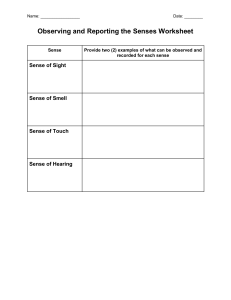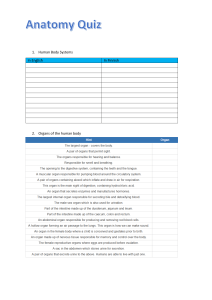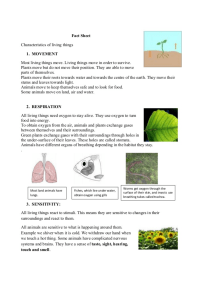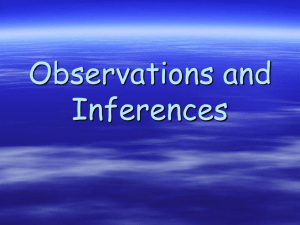Five Senses & Gas State Worksheet - Elementary Science
advertisement
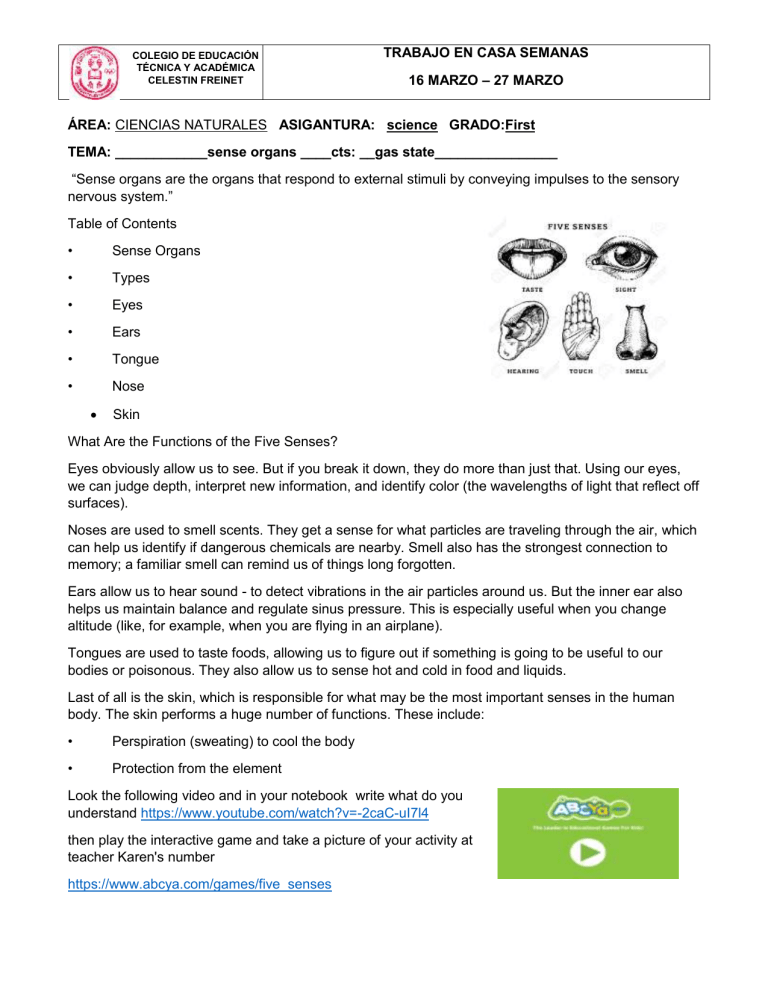
COLEGIO DE EDUCACIÓN TÉCNICA Y ACADÉMICA CELESTIN FREINET TRABAJO EN CASA SEMANAS 16 MARZO – 27 MARZO ÁREA: CIENCIAS NATURALES ASIGANTURA: science GRADO:First TEMA: ____________sense organs ____cts: __gas state________________ “Sense organs are the organs that respond to external stimuli by conveying impulses to the sensory nervous system.” Table of Contents • Sense Organs • Types • Eyes • Ears • Tongue • Nose Skin What Are the Functions of the Five Senses? Eyes obviously allow us to see. But if you break it down, they do more than just that. Using our eyes, we can judge depth, interpret new information, and identify color (the wavelengths of light that reflect off surfaces). Noses are used to smell scents. They get a sense for what particles are traveling through the air, which can help us identify if dangerous chemicals are nearby. Smell also has the strongest connection to memory; a familiar smell can remind us of things long forgotten. Ears allow us to hear sound - to detect vibrations in the air particles around us. But the inner ear also helps us maintain balance and regulate sinus pressure. This is especially useful when you change altitude (like, for example, when you are flying in an airplane). Tongues are used to taste foods, allowing us to figure out if something is going to be useful to our bodies or poisonous. They also allow us to sense hot and cold in food and liquids. Last of all is the skin, which is responsible for what may be the most important senses in the human body. The skin performs a huge number of functions. These include: • Perspiration (sweating) to cool the body • Protection from the element Look the following video and in your notebook write what do you understand https://www.youtube.com/watch?v=-2caC-uI7l4 then play the interactive game and take a picture of your activity at teacher Karen's number https://www.abcya.com/games/five_senses Make the following guide Cut the following pictures and paste acording to the organ sense Topic: gas state (1hour) Gas is one of the four fundamental states of matter (the others being solid, liquid, and plasma). A pure gas may be made up of individual atoms (e.g. a noble gas like neon), elemental molecules made from one type of atom (e.g. oxygen), or compound molecules made from a variety of atoms (e.g. carbon dioxide). Look the following video https://www.youtube.com/watch?v=EDTF6l2WhYo
